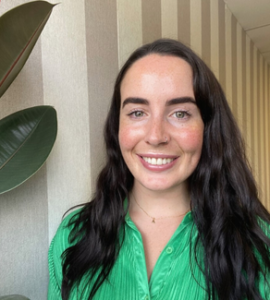What is relationship therapy?
Relationship therapy (or couples counselling) provides a safe, non-judgemental, and welcoming space for couples to explore difficulties within a relationship, and learn strategies to better manage and reduce the burden these difficulties have. For many couples, some difficulties that are likely to arise in a relationship are often related to communication, intimacy, friendship, conflict resolution and managing finances and family.
Who is relationship therapy for?
Relationship therapy is for everybody. For couples who have been together 6 months, and for couples who have been married 30 years, relationship therapy is for anybody who wants to identify areas for growth in their relationship, and subsequently feel more fulfilled and valued with their partner. Relationship therapy is important for learning to identify the 4 horsemen of the apocalypse (unhealthy communication styles that lead to higher chances of separation) and whether criticism, contempt, stonewalling, or defensiveness is being used in a relationship. Relationship therapy is also an effective way to explore intimacy issues and create fun and new ways of connecting. Relationships are complicated, and sometimes it takes an impartial, unbiased person to create a space where both people can feel heard, listened to, and validated. For younger couples, I see relationship therapy as a preventative measure, and that engaging in therapy early is often an effective way for couples to prevent bad communication patterns, develop strong awareness of their partners inner worlds and build strong foundations of trust and respect. However, whatever stage of the relationship or marriage you are at, you are bound to at least learn one new thing that may foster growth: growth within the relationship and growth within yourself.
What will relationship therapy look like?
As a psychologist and sexologist, I utilise various frameworks, and like to think of my therapy approach as eclectic and person-centred. I do not follow one method alone, as I believe all people and their relationships are unique, complex, and the associated difficulties multifaceted. Therefore, couples require a tailored therapy approach that is specific to their relationship needs. I predominantly draw from the research based Gottman Method approach, whilst implementing interventions from sex therapy, psychodynamic therapy, and emotionally focused therapy. I will outline what a “typical” relationship therapy intervention might look like with me below:
Session 1: Initial Assessment
This session will always be a joint couple’s session, with the aim of getting to know both partners, more about the current relationship difficulties, relationship history and fostering a sense of safety and respect within the therapy room. This is also a time for both partners to get to know me as a therapist and ensure that my approach suits their needs and personalities. This session is often the most nerve-racking, which is why I prioritise both partners feeling safe and heard and encourage you to enjoy a tea or coffee while you settle into a new environment.
Session 2: Individual Sessions
Dependent on the issues identified in the assessment session, I may recommend that both partners complete a 45-minute individual session separately with me. In these sessions, each partner’s view on the relationship difficulties is explored further, and more in-depth knowledge relating to the individuals past relationships, family dynamics and childhood is explored. This allows me to understand the formation of the relationship difficulties, and whether individual factors relating to attachment, trauma, mental health, or personal value systems may have influenced the current relationship difficulties. In the individual sessions, I will send both partners in depth questionnaires, which will be scored and compiled into a comprehensive relationship report. This report provides details surrounding each partners satisfaction in several areas within the relationship and allows for me to identify the relationships strengths and weaknesses.
Session 3: Feedback and treatment planning
This session is focused on providing feedback from the assessment, questionnaires and individual sessions and discussing in depth the strengths and weaknesses that have been identified within the relationship. This session is spent discussing the goals that the couple have for improving their relationship, and how this can be achieved. This session is largely focused on psychoeducation, and providing the couple with education around the issues they are experiencing, and the most effective interventions to work on these issues.
Session 4: Intervention sessions begin
Therapy sessions will begin, and each session will be tailored individually to the couple. Expect to learn, grow, be challenged and at times feel uncomfortable. Relationship therapy is hard and can bring up various emotions and trigger negative core beliefs within each partner. It is okay to make mistakes, and it takes time to re-learn unhealthy relationship patterns and behaviours. Therapy sessions will always be compassion focused, with an emphasis on building better understanding between two people. Relationship therapy is not about proving who is right or wrong, but rather accepting that BOTH partners subjective views are right, and that we must find a way to meet in the middle, compromise and empathise, as those are the hallmarks of a healthy relationship.
Author: Abbey Sawyer Sexologist, MAAPi, PostGradDipPsych, BPsychSci, BCrim.
Abbey is a Sexologist who has completed her Masters of Science in Medicine degree, specialising in psychosexual therapy. Abbey is passionate about the interlink between psychological health and sexuality, and enjoys supporting people of all ages, genders, and cultural backgrounds to enrich their sexual lives and improve their mental health.
To make an appointment try Online Booking. Alternatively, you can call Vision Psychology Wishart on (07) 3088 5422 or M1 Psychology Loganholme on (07) 3067 9129
